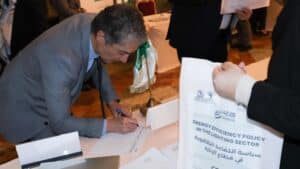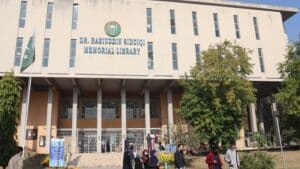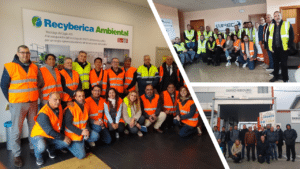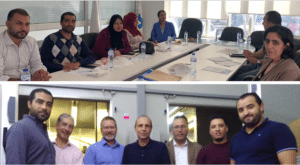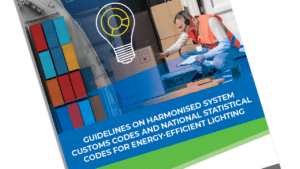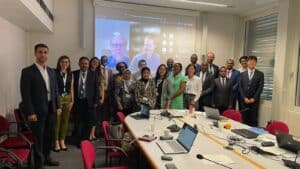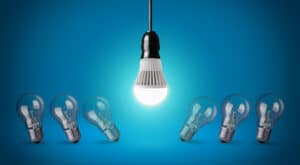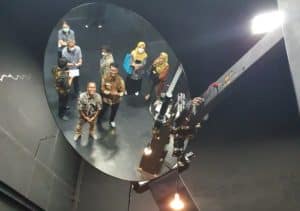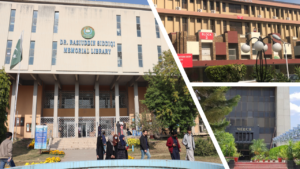At the end of December 2023, U4E supported a Regional Energy Efficiency Policy Workshop in Algiers organised with the African Union African Energy Commission (AFREC), as part of our activities under the African Energy Efficiency Program. Participants included representatives from African Union Member states, regional centres for renewable energy and energy efficiency, international partners and the private sector. The event was hosted by the Algerian Energy Efficiency Authority (APRUE), a public ...Read More
How energy-efficient lighting is helping Pakistan counter climate change
Sitting at the base of Islamabad’s Margalla Hills is the Raziuddin Siddiqi Memorial Library, a four-storey building packed with more than 2 million books, CDs and DVDs. Along with being one of Pakistan’s largest libraries, Raziuddin Siddiqi is unique for another reason: on entering the building one won’t hear the tell-tale flicker of fluorescent lights. That is because the library has replaced all 103 of the fluorescent tubes on its ground floor with energy-efficient light-emitting-diodes ...Read More
Bolivia and Tunisia Stakeholders Learn from Environmentally Sound Management Expertise in Spain
In November 2023, as part of a four-day study tour, representatives from Bolivia and Tunisia visited three waste management treatment sites in Madrid and Zaragoza in Spain. Their objective was to learn more about best practices in environmentally sound management (ESM) for electric and electronic waste, which includes lighting waste, and meeting the requirements of national extended producer responsibility (EPR) regulations – an environmental policy approach in which a producer’s responsibility ...Read More
Training Workshops in Tunisia Strengthen MVE Capacity for Lighting Products
In November 2023, UNEP U4E convened two training workshops to build capacity amongst key stakeholders in Tunisia for monitoring, verification and enforcement (MVE) activities to support the country’s forthcoming adoption of mandatory Minimum Energy Performance Standards (MEPS) for lighting products. Adoption of MEPS in line with the recommendations of the UNEP U4E model regulation guidelines for lighting project and the sustainable transition to energy-efficient lighting technologies has the ...Read More
Using HS Customs Codes as a Key Tool in Transforming Markets to Energy Efficient Appliances
Minimum energy performance standards (MEPS), often in combination with energy labelling, offer a highly effective means of transitioning national markets to more energy-efficient lighting, electrical equipment and appliances. But not all MEPS and labelling schemes are created equal. Experience shows that the approaches which stimulate the greatest shift towards higher efficiency products are those that follow proven good practices in the development and application of national programmes. ...Read More
Increasing Energy Efficiency to Decrease Mercury Use in Lighting
Mercury is a highly toxic heavy metal that poses a global threat to human health and the environment. Mercury is one of the top 10 chemicals of major public health concern, according to the World Health Organisation (WHO) as it affects the nervous, digestive and immune systems, and also has adverse effects on the environment, including water and soil, and when released to the atmosphere where it is transported around the globe and bioaccumulates in the food chain. Despite this, it is still used ...Read More
U4E Model Regulation Guidelines Support Development of New Mandatory Energy Efficiency Standards for Lighting in South Africa
In May 2023, the South African Department of Trade and Industry and Competition officially announced new compulsory Minimum Energy Performance Standards (MEPS) for lighting in South Africa, which will effectively ban all but energy-efficient light emitting diode (LED) lamps for general service lighting. The development of these MEPS was led by the Department of Mineral Resources and Energy and approved by the Department of Technology, Industry and Competition, with the proposed standards open ...Read More
Indonesia Boosts Monitoring, Verification and Enforcement Capability with Technical Study Tour in Thailand
In November 2022, representatives from the key stakeholder organisations involved in monitoring, verification and enforcement activities in Indonesia spent four days at the Electrical and Electronics Institute (EEI) in Bangkok, Thailand to reinforce and develop the national capabilities for undertaking the testing required to underpin regulations for energy efficiency of lighting products in Indonesia. The technical study tour was undertaken as part of the GEF-funded Advancing Indonesia’s ...Read More
Shedding Light on Energy Efficiency in Sudan with ‘Super Energy’ for Schools
The role that young people can have in spreading climate change messages and recruiting behaviour change is becoming more and more apparent. This hasn’t gone un-noticed in Sudan where an energy-efficient lighting awareness campaign was designed specifically to target primary school children as a route to engaging their families and communities. This is particularly important in Sudan where the illiteracy rate is still high, and many families learn from their children who attend schools. Schools ...Read More
Pakistan Pilot Projects Demonstrate the Benefits of Retrofitting with High-Efficiency LED Lighting
As recently demonstrated by three pilot projects in Pakistan, implementation of new lighting regulations and green procurement practices to accelerate the uptake of high-efficiency LED lighting technologies and smart controls (e.g., occupancy sensors and street lighting dimming controls) offers one of the single biggest opportunities to quickly realize immediate energy savings and greenhouse gas (GHG) emissions reductions. Pakistan has been actively working to achieve these benefits since ...Read More
- 1
- 2
- 3
- …
- 9
- Next Page »
